It’s Time for a Fresh Perspective on Ethics & Compliance Training

Technology giant Microsoft has become one of the highest-profile organisations to be investigated over allegations of corruption and bribery. Recently, it was found in violation of the U.S. Foreign Corrupt Practices Act and agreed to pay US$25 million to settle investigations into alleged bribery by former employees in Hungary.
For a company with revenues in excess of US$125 billion and net income reaching nearly US$40 billion, the fine is microscopic, but mud sticks and the reputational implications could far exceed the financial penalties.
In an internal email to employees the software maker’s President Brad Smith confirmed that those people involved in the misconduct allegations had been dismissed and the company has ended a number of business relationships in that country for what it has said were violations of its company policies.
Since these allegations came to light, Microsoft has also emphasised how seriously it takes its responsibility to “take steps to train our employees, and to build systems to prevent and detect violations, and when we receive allegations, to investigate them fully and take appropriate action.”
The damning ethical lapse has certainly sharpened Microsoft’s focus on having a robust anti-bribery and anti-corruption compliance programme in place. And its headlines such as these, along with growing levels of consumer and stakeholder activism, which has caused organisations to look inwards and view their own corruption policies and procedures. Where previously they have been viewed as ‘nice to have’ but not ‘essential’ the review and implementation of programmes and instilling a proper anti-corruption culture has not only been pushed up the corporate agenda but is also becoming the credo of organisations.

By providing the right training to employees about ethics and compliance (E&C) issues such as code of conduct and anti-bribery and corruption, Microsoft could have mitigated the risk of such damning egregious misconduct. What we are seeing now is how E&C programmes are becoming more important than ever in helping the fight to end the complex and ever-evolving phenomenon of corporate corruption.
Transforming Global Ethics & Compliance Programmes
Having a robust ethics and compliance programme has never been more relevant than it is in today’s values-based global economy, where expectations and scrutiny on a business’ practices are so high. Even those with a strong culture and values like Microsoft can soon find themselves in the middle of a media storm, facing potential business and reputational damage.
Although organisations, especially those with an effective learning and development management function, make every effort to ensure training materials and courses provided to employees are dynamic and fit for purpose. Sadly, many compliance training programs are missing the mark and sometimes lack the support and tools to give the materials the lift they need. The trouble is that there’s evidence that most approaches aren’t working. Research by SAI Global and Towards Maturity on global compliance programmes found that 56 percent of businesses cite user engagement and 46 percent identify dull and boring content as barriers to compliance training success.
Organisations need to realise that there has got to be a better way to make the impact in behaviour change that is needed. Because when employee engagement is low, people tend to check out; they may become inattentive, distracted, and lose focus on the information being communicated. However, when employee engagement is robust, people are more likely to care. Importantly, when it comes to ethical risk, it’s not just generic engagement that is important, but whether employees are morally engaged. This deeper level of engagement is especially desirable because it counters certain potential negative effects of out-of-bound engagement.
Businesses, therefore, have to question the status quo and change the way they are ‘doing’ compliance training if they are to bridge the gap between expectation and achievement. There is no way to start an efficient process of culture change without measuring culture first. What are the strengths and weaknesses the organisation presents today? How can a company direct certain bad habits and what is the smartest way of doing it? What capacities are missing? What are the most pressing gaps that the company needs to close to reduce risk?

Employee fatigue and engagement is an issue that Johnson Controls International (JCI) was facing and they knew that they needed to transform their E&C training. The global diversified technology and multi industrial leader has always placed a heavy empathises on the need to conducted business with integrity. Throughout its history, the company has been dedicated to “doing the right thing” and has received a number of plaudits for its efforts. Including being named one of the “World’s Most Ethical Companies” 12 times by the Ethisphere Institute.
Despite providing annual training for its 120,000 employees, the company was finding that its employees were becoming disengaged learners. Not surprising considering the annual training took between six and ten hours for each employee, the content wasn’t always relevant or specific to job roles, and there was minimal data available to measure programme effectiveness.
Wanting their compliance training to be more than a checkbox-ticking exercise, the company conducted a survey and the results proved that learner fatigue had set in across the business. Some 42 percent of Johnson Control’s learners were dissatisfied with the E&C training, 46 percent said that the content was irrelevant, 39 percent said the course was too long, and 15 percent said the course was boring or repetitive.
The ambition for JCI wasn’t to just transform the organisation’s culture in the shortest period of time – unrealistic and at best a consultant fable – but instead to identify the right culture architecture and to have a tangible, effective change plan to implement that architecture – one process and one system at a time.
The challenge then was how could JCI go about pushing the boundaries of traditional compliance and ethics education and completely refresh the E&C programme with an evolved, modern and learner-focused approach; one that accomplished key organisational goals but didn’t allow learner fatigue to set in.
The company knew that creating a culture that influences employees’ actions, decision-making and behaviour can be a challenging and lengthy process, requiring sensitivity, patience and resources. Johnson Control’s compliance team recognised that undergoing such a massive overhaul was something that they couldn’t do alone, so enlisted the help of a leading ethics and compliance learning provider, SAI Global.

JCI understood that they needed to work with an organisation capable of and willing to approach things differently and deliver change in a way that was globally scalable. They wanted shorter and more engaging content and technology that enabled data capture to track effectiveness measures, and a responsive and knowledgeable support team that served as an extension of their own internal resources. SAI Global offered this combination of content, technology, and services, helping the compliance team and JCI accomplish their goals and continuously improve the online training element of their E&C programme year over year.
As partners do, JCI also provides feedback to SAI Global, which allows the solution provider to ensure future products, content, and innovations are aligned with mature and forward-thinking needs and goals.
Overall, the team managed to create a more effective global E&C training programme – making potentially dry subjects like anti-bribery and anti-corruption more engaging. With emotive situation and scenario-based learning, and analytics and insights to measure values-based competency of learners, the learning content from SAI Global enables JCI employees to understand the significance of business decisions allowing them to recognise what their ethical capacity is to make the right decision.
By incorporating these interactive elements into each module and making the learning content more relevant, employee engagement levels have soared. A new survey circulated revealed that there was a significant increase in engagement from employees. Some 76 percent said they found training to be more relevant, 85 percent that training content was easy to follow, and 78 percent of employees said that the duration of the training was appropriate for the subject matter covered – a 67 percent increase from the 2015 survey.
By building and embedding systems and processes that help employees feel responsible for the state of ethics throughout the company, like JCI did, can set in motion the creation of a sustained ethical programme. One that brings a competitive advantage to companies of any size or structure, by helping them to build trust, mitigate bribery risk and ultimately future-proof the organisation.
READ MORE
- Enhancing Business Agility with SASE: Insights for CIOs in APAC
- 3 Steps to Successfully Automate Copilot for Microsoft 365 Implementation
- Trustworthy AI – the Promise of Enterprise-Friendly Generative Machine Learning with Dell and NVIDIA
- Strategies for Democratizing GenAI
- The criticality of endpoint management in cybersecurity and operations
